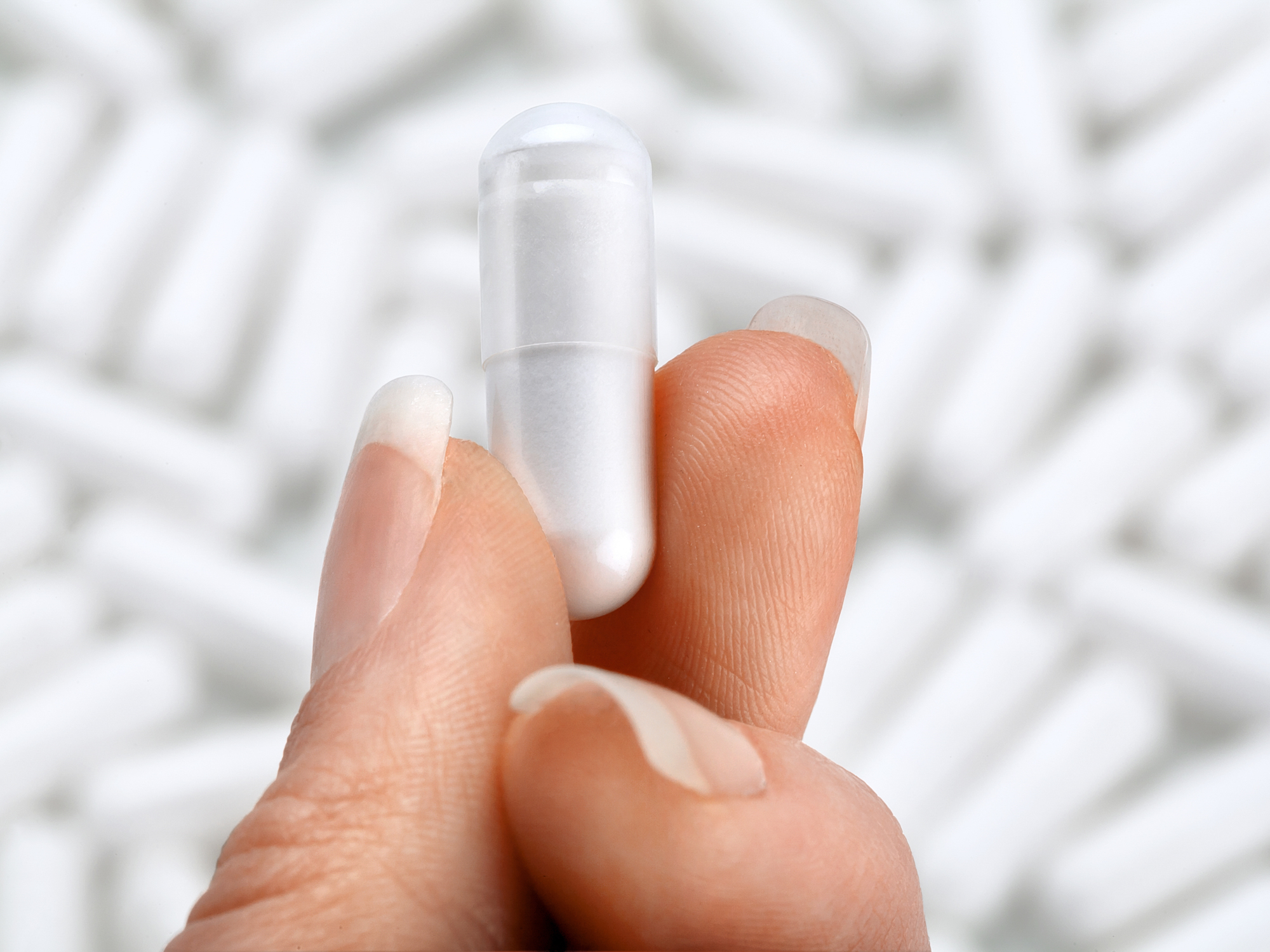Get Easy Health Digest™ in your inbox and don’t miss a thing when you subscribe today. Plus, get the free bonus report, Mother Nature’s Tips, Tricks and Remedies for Cholesterol, Blood Pressure & Blood Sugar as my way of saying welcome to the community!
The natural appetite suppressant that fights fat and diabetes

Probiotics are beneficial bacteria introduced into the digestive tract, either through food or supplements, often to counteract medications such as antacids and antibiotics, which kill off good gut bacteria.
Prebiotics on the other hand are soluble plant fibers such as inulin that feed the healthy bacteria already in the colon.
Since inulin isn’t affected by stomach acid, it can’t be digested in the small intestine, and it passes, unscathed, straight down to the large intestine (colon). There, it functions as prebiotics, nourishing the friendly, beneficial bacteria that live there as inhabitants of your microbiome.
Inulin has been used for hundreds of years as a natural way to improve bowel function, digestion and gut health, as well as to control appetite and support heart health.
Because inulin is super-soluble, it absorbs water more quickly than other soluble fibers and forms a gelatinous substance that helps you form stool that can be passed more easily.
When mixed with liquid, it not only helps relieve constipation, but its creamy, gel-like structure provides a natural lubrication for the digestive system, which lessens the risk for hemorrhoids.
Prebiotics function improves gut health
During the journey from stomach to small intestines, inulin mixes with water and undergoes fermentation, which transforms it into acetate, propionate and butyrate, which are short-chain fatty acids (SCFAs) involved in sugar production.
In this process, the SCFAs become dinner for the probiotic bacteria that reside in the colon ― that is, the “good” bacteria such as bifidobacterium and lacto bacilli.
Fermentation is an important step, not only because it stimulates the growth of good bacteria but because it causes them to thrive. As the good increase, the harmful bacteria, yeasts and parasites that can cause inflammation proportionately decrease, and your risks for inflammatory bowel diseases and colon cancer diminish.
A British Journal of Nutrition report in 2005 concluded that inulin’s improvement in gut health can result in better immune system functioning, protection against heart disease and diabetes, more effective weight management, healing of leaky gut syndrome and improved nutrient absorption.
Short-chain fatty acids aid in weight control
Growing evidence suggests short-chain fatty acids (SCFAs) not only provide a source of nourishment for your colon cells but also play an important role in suppressing appetite.
A number of studies support this conclusion, including one 18-week study of overweight and obese adults who took 21 grams of inulin a day. Those taking inulin had substantial decreases in the hormone that drives hunger and a corresponding increase in satiety.
The inulin group lost more than two pounds, but the non-inulin group gained one pound. The prediabetes subjects on inulin had a 7.6% decrease in body weight, while those not taking inulin lost only 4.9%.
After one mice study, the researchers concluded that “the lower body fat content induced by inulin may be metabolically advantageous. Differential effects of fermentable carbohydrates open new possibilities for nutritionally targeting appetite regulation and body composition.”
The mice fed a high-fat diet with inulin (or beta-glucan, another prebiotic), had “lower body weight, significantly less total body fat and an increase in the numbers of beneficial bacteria” compared with those whose diet was not supplemented.
A human study ― the first of its kind ― showed that SCFAs formed in the colon, especially propionate, affect those areas of the brain responsible for reward-driven behavior associated with food. As a result, people may find high-calorie foods less appealing and reduce their calorie intake.
Inulin reduces diabetes risk
Inulin’s ability to help with weight control benefits people with diabetes, but it helps in other ways as well.
People with diabetes, who have elevated levels of insulin and sugar in the blood, tend to have increased damage from free radicals, which destroy healthy cells. They also have a shortage of much-needed, protective antioxidants to combat and neutralize free radicals.
Inulin has been shown to improve blood sugar control for women with type 2 diabetes and boost their antioxidant levels. Greater antioxidant activity reduces free radical damage and lowers the risks of complications.
Are you getting enough inulin?
Odds are that you’ve been ingesting inulin all your life with no awareness of what it is or does, but it plays an enormously important role in gut and bowel health.
To truly nourish your digestive tract:
- Boost inulin with asparagus, leeks, garlic, onions and Jerusalem artichokes
- Avoid processed foods, sugar, grains and pasteurized foods
- Eat traditionally fermented foods such as sauerkraut, kefir, kimchi, tempeh and lassi (a yogurt-based drink popular in India)
It isn’t always easy, however, to control what you take in through diet alone. To ensure that you get inulin on a consistent basis, look for a high-quality supplement. Inulin can often be found as part of a high-quality supplement that supports overall colon health, elimination and regularity.
Editor’s note: Did you know that when you take your body from acid to alkaline you can boost your energy, lose weight, soothe digestion, avoid illness and achieve wellness? Click here to discover The Alkaline Secret to Ultimate Vitality and revive your life today!
Sources:
- Axe, J. 6 Inulin Fiber Benefits, Uses and Surprising Facts. Dr.Axe.com. https://draxe.com/inulin/.
- Brooks, L., et.al. Fermentable carbohydrate stimulates FFAR2-dependent colonic PYY cell expansion to increase satiety. Molecular Metabolism, Volume 6, Issue 1, January 2017, Pages 48–60. http://www.sciencedirect.com/science/article/pii/S2212877816302253.
- Mercola, J. Health Benefits of Inulin. Mercola.com. http://articles.mercola.com/sites/articles/archive/ 2016/03/07/inulin-health-benefits.aspx. Mar. 7, 2016
- Pilani, A. Fatty Acids Produced by Gut Bacteria Reduce Appetite. Aline Pilani. https://alinepilani.com/ fatty-acids/. May 24, 2016
- Spritzler, F. Inulin 101 ― A Prebiotic Fiber With Powerful Health Benefits. Authority Nutrition. https://authoritynutrition.com/inulin-prebiotic-fiber/.













